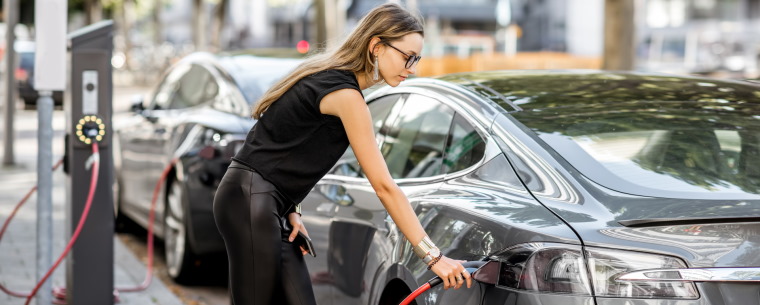Are Electric Cars More Expensive to Service?
Jack Dreyer | Tuesday 19th April 2022 12:00pm

Electric cars are becoming more and more popular on Britainís roads. And, as a result, more and more common at garages for servicing. But just how much do electric vehicles cost to service?
Sure, they have different inner workings, different engines, and even different tyres. But are the servicing options for electric vehicles actually that different to regular ICE (Internal Combustion Engine) models?
Perhaps youíre looking to buy an electric car and want to know your options first, or your electric carís service is due. Whatever your reasoning to learn more about the servicing of electric vehicles, read on to find out more.
Servicing your electric vehicle
As with any vehicle, electric cars should enjoy regular servicing to keep them running smoothly and at optimum performance.
| Service Type | Service Interval |
|---|---|
| Interim Service | Every 6 months or 6,000 miles (whichever comes first) |
| Full Service | Every 12 months or 12,000 miles (whichever comes first) |
| Manufacturer Service | As per manufacturer service schedule |
How often should you service your electric vehicle?
Just as with regular combustion engine vehicles, electric cars should be serviced at least once a year (or every 12,000 miles if sooner).
Depending on your driving style, electric cars should also be serviced every 6,000 miles or 6 months too. As a general rule of thumb, electric vehicles do need to be serviced a little more often than their normal counterparts due to the way in which they are likely to be driven.
Electric vehicles have to be charged regularly, meaning less smooth cruising and more city driving with stops and starts. This wears down the tyres and brakes at a greater rate than normal driving, resulting in a need for more regular checks ups to monitor the wear and tear.
Find out more about when your vehicle needs to be serviced here.
What is included in an electric vehicle service?
Depending on the service, an electric vehicle is subjected to many of the same tests as a regular vehicle.
The usual procedures that are involved in Interim and Full services do, for the most part, still apply. This includes, but is not limited to, the following: instruments, windscreen wipers, brakes, horn, lights, seatbelts, air-con, suspension, tyres, and under-bonnet area, as well as much more.
That being said, the inner workings of an electric vehicle are far less complex than those of a combustion engine. So, the servicing is much less detailed and takes far less time. Simple things like Engine Oil and Filter Checks are not required for electric vehicles.
Most electric vehicle services focus on the core area of the battery since this holds the operation of the car together. You can find out more about the difference between electric and regular car batteries in our blog here.
If the capacity of the battery has dropped significantly, it will need to be replaced. Electric vehicle battery replacement is where the expenses lie; however, this is not a regular fee you should expect to have to account for any more than buying new tyres.
The charging cable will also most definitely be checked for damage and performance and a replacement will be fitted if needed.
How much does an electric vehicle cost to service?
Similarly to fuel costs, electric vehicles are also cheaper to service and maintain. Although there is a noticeably higher purchase price upfront, EVs cost far less to get serviced.
In petrol and diesel models, servicing engineers must check the fuel cap, the coolant levels, the fuel pipes, and the engine. On top of this, there is usually maintenance to be done since fuel pipes corrode easily.
Since electric vehicles have far fewer under-bonnet items and moving parts, things are far less likely to wear down over time. This means that fewer items will need to be replaced.
If you own a petrol or diesel car, youíll know all too well the nasty unexpected costs that come with parts needing repair or replacement. Things like oil filters and cam belts can be ridiculously expensive to replace ó and electric vehicles just donít have these parts.
If you have any questions about your electric vehicle, speak to the experts at your nearest Kwik Fit. In the meantime, find out more on our blog.
Any facts, figures and prices shown in our blog articles are correct at time of publication.
Featured Articles
Is it Illegal to Drive With One Headlight?
Saturday 19th July 2025
Wondering if itís illegal to drive with one headlight? Learn about the safety risks and penalties of illegal blown bulbs and why you should fix them promptly.
Air Con in EVs & Hybrids: Experts Answer Your Questions
Monday 30th June 2025
Does air con drain EV batteries? Can you use the air con while charging an electric car? Find out the answers to these questions & more from Kwik Fitís experts.
Why Is Your Car Making a Noise? Fixes & Tips
Friday 13th June 2025
When your car starts making unexpected noises, it can certainly be quite disconcerting; it may be nothing to worry about, but hereís what you need to know.









